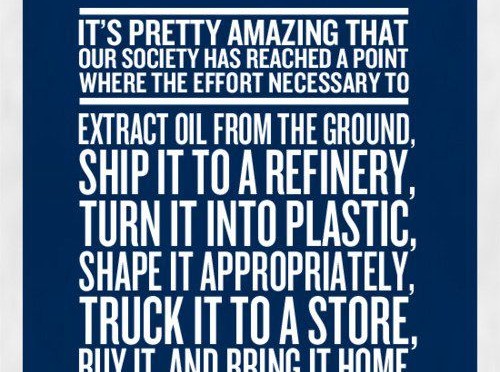The last few days, the following photo has bounced around my space in Facebook:

The cynical person will no doubt ask: what are the comparable costs of metal spoons, eh? Why don’t we compare apples to apples, here?
And then the intuitive among us will point out, yeah, but you only buy one metal spoon and wash it when you are done, rather than take a plastic spoon and throw it away on a daily basis. That’s how it scales.
For me, I am more interested in weighing the total cost when making a decision. When we decided whether or not to take a plastic spoon with the understanding that it will be thrown away, it is irresponsible of us to take only those sets of facts to be part of that decision. We are misguiding ourselves into making an easier, and more selfish choice. This is clearly the case, since the entire defense for not throwing away the spoon has been deemed irrelevant.
Many of our decisions contain these hidden costs; we simply ignore them. When corporations pollute, there is virtually no mechanism for attributing the real cost to the polluter. Or often when a business goes bankrupt, they clear out of the building, but don’t sell it, so it remains vacant for years, depreciating the value of the businesses around it. Or there is the plight of the heirloom tomato, which is going extinct due to cross-pollination and genetic modification. Or the problem of cutting the police force in Trenton, NJ by 1/3 led to an exponential increase in crime, not 1-to-1, but more like 1-to-10.
All of these examples were made easier when the true costs were hidden. They also encouraged selfishness on one group’s part over the needs of others.
What then, is the hidden cost of such selfishness? What are we paying for when we allow others to selfishly hide the costs?
Question:
What decisions do we make that contain hidden costs that we ignore?
Why do we ignore them?
What is the cost of ignoring those costs?
[UPDATE: Here are two follow-ups about the Spoon. One about meritocracy and one about food labeling.]

Leave a Reply